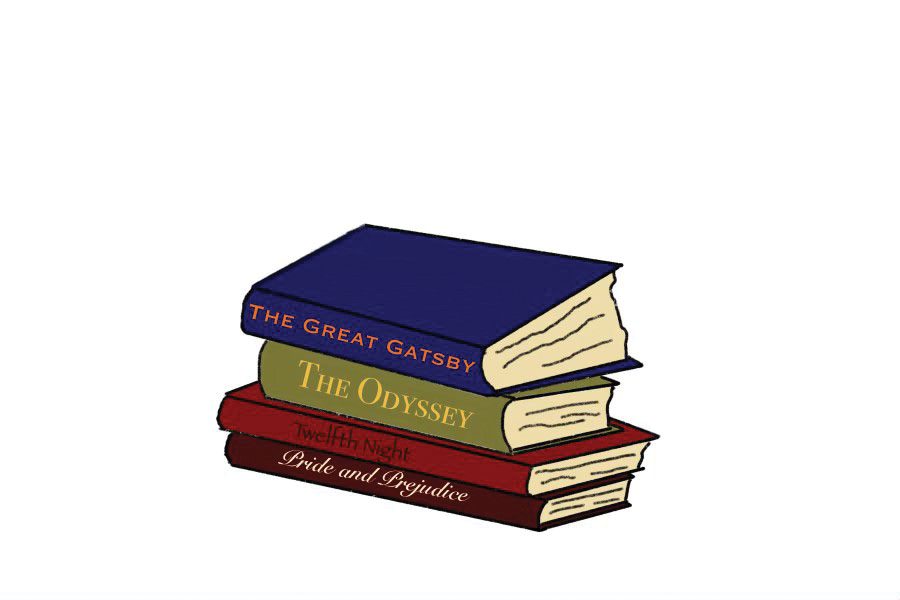Judging classics by their covers
October 16, 2021
Despite their archaic grammar, complicated prose and out-of-date representation, classic novels continue to find themselves on our curriculum and bookshelves. We spend much of our English courses reading them for their plots and themes, our History courses for their supplementary context and our foreign language courses for their literal translations. Entire electives focus their year on the work of one ancient author; others use various writers to guide them through a semester. Throughout all the time we have read them, our teachers and parents have assured us that these novels are essential to our development as people.
Why should we believe them? As teenagers in the 21st century, it seems that books written by authors thousands of years ago would be unimportant to us. After all, we are separated from them by centuries of social, political and technological changes that have redefined the human experience. Oftentimes their authors have completely different social and religious identities than us, and hold political views we would today consider reprehensible. Knowing this full well, we spend our class time in the humanities close-reading these novels word-by-word, considering exactly how their themes can add meaning to our lives. When analyzing their most frustrating pages, we ask ourselves if teachers make us read them only because it’s what “educated” people do: if they have no other reasoning than vague adherence to tradition.
And yet, setting aside their challenging and often irritating nature, classic novels can bring immense value to our lives. Like all great art, they force us to develop an eye for detail, confront new ideas and empathize with characters unlike us.
Regardless of the mystique surrounding them, classics are exactly as they appear: text bound by pages to convey a central message. If you strip away the polysyllabic words and page-long sentences from “1984,” you will find themes and questions that make up our contemporary politics. And if you take the time to read “Frankenstein” with all of its complicated grammar intact, you will uncover beautiful descriptions of the natural world, ones that simply cannot be replicated by our colloquial language.
At their best points, the universal themes and complex writing of these novels work hand-in-hand: they convey ideas valuable to our everyday lives in unique and engaging ways. Their pages add flavor to the dates and footnotes of history, life to destroyed ruins and individual stories to broader political movements. Most importantly, they help us to develop compassion for people we would generally not think twice about in a history textbook. Rather than understanding the working conditions of 19th century London through colorless government statistics, we see them firsthand through the eyes of young orphan Oliver Twist. And instead of distantly associating political authoritarianism with danger and instability, we clearly see its effects unfold in the dystopias of “Fahrenheit 451.”
In this way, classic literature accomplishes something unique among all novels: the ability to convey complex historical themes through relatable characters. Their authors have lived through the wars, speeches and laws that make up our understanding of the past, and are able to write about them with more clarity than any contemporary research paper or academic thesis. Armed with traits that span centuries, their characters guide us through these difficult waters and heighten our senses for the people we have the least in common with.
Classic novels aren’t perfect. They can be clunky, overly complicated and rife with archaic depictions characteristic of their time period. But they can also serve a unique purpose in our lives, helping us to appreciate the features of history and the lives impacted by them. If we diligently sift through their pages, carefully choosing the messages we can keep and those we can do away with, these novels help us better understand the world in which we live. We should therefore read them not just as functions of their historical moment but as works we can learn from and cherish.
After all, they’ve survived this long for a reason.































